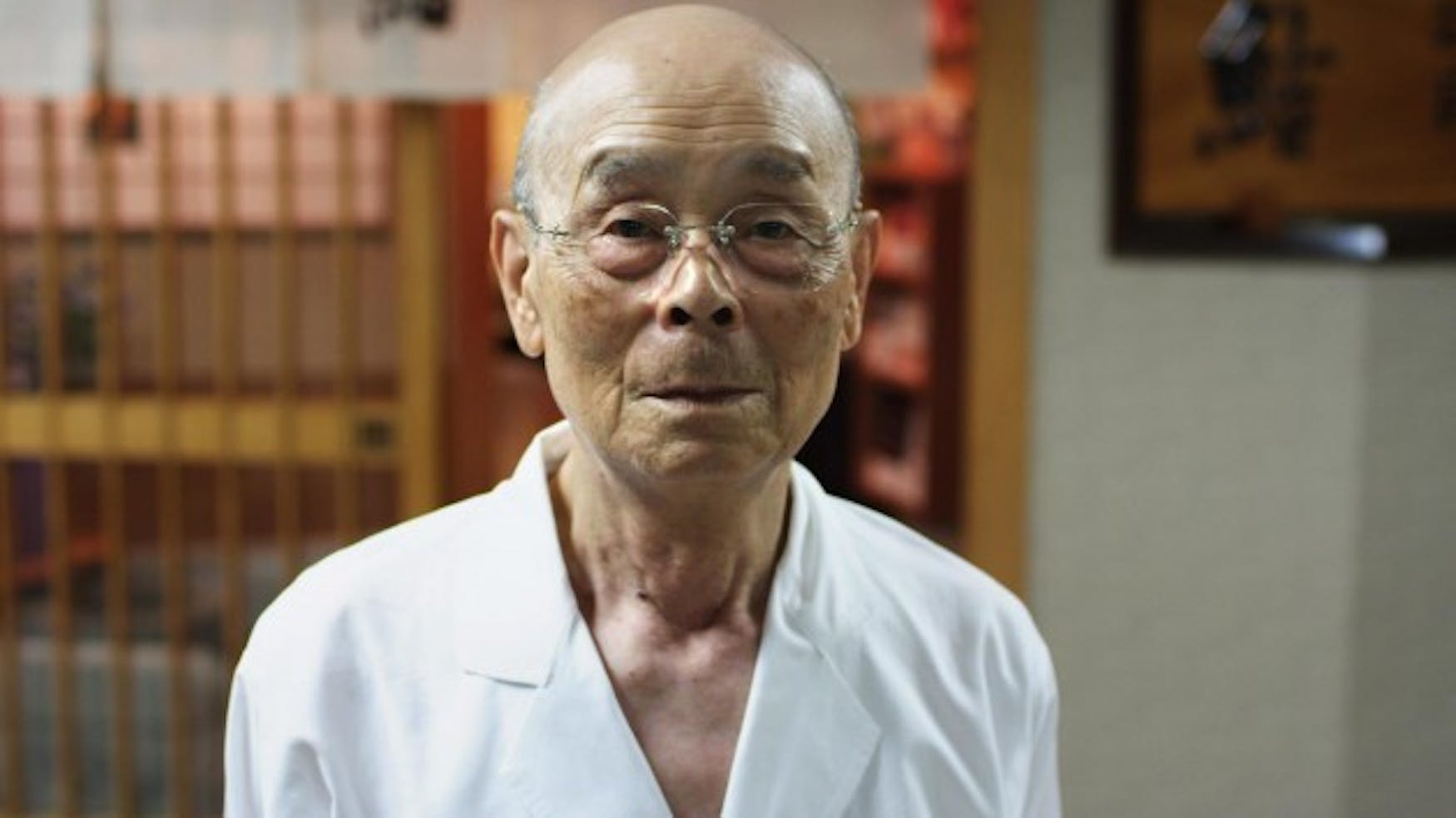Gelb brings legacy of sushi chef Jiro to US
There is no dearth of savory sushi in David Gelb's first documentary feature film, Jiro Dreams of Sushi, but the movie is more than just a sea of close-up shots displaying colorful fish and rice as well as chefs massaging octopus and slicing tuna. For the sushi lover, the images transmit umami (Japanese for deliciousness), but the film also offers a human story for those less interested in the difficult process of getting the fish from sea to mouth.
The Magnolia Pictures documentary, which was screened in the Wasserman Cinematheque on Thursday night ahead of its scheduled limited release March 9, focuses on Jiro Ono, an 85-year-old sushi master who is widely considered to be the best susushi chef in the world.
Jiro owns Sukiyabashi Jiro, a 10-seat, sushi-only restaurant, located in a Tokyo subway station. The restaurant has won numerous awards, including the esteemed three-star ranking in the Michelin Guide, a European hotel and restaurant guide.
To get a seat, you need to make a reservation a month in advance and be willing to shell out upwards of 30,000 yen (about $350).
The film, at 81 minutes, draws viewers in with slideshow images of freshly made sushi set to classical music. The plot holds their attention by telling the story of Jiro and his son's encounters with sushi.
The movie portrays sushi making as an art form, which Jiro practices and has mastered over decades of work. Food critic Masuhiro Yamamoto compares the three-course meal to a symphony of sorts. Each course serves a purpose, with a crescendo of flavor during the final serving.
"In dreams, I would have visions of sushi," said Jiro in the film.
The film also delves into Jiro's personal life. The chef was orphaned at the age of nine and was forced into an apprenticeship in the food industry.
He discovered, however, that he loved the art of sushi making and has worked his entire life to be the best in his profession. Jiro has always loved his job and rarely takes breaks or vacations. But he insists that he has not yet reached perfection, and he always strives to create a better piece of sushi.
Jiro is a creature of habit. He follows a strict daily routine and understands the value of repeated practice; that is how he became the best. "You have to fall in love with your job. You must dedicate your life to mastering your skill," said Jiro.
Jiro's two sons, Yoshikazu and Takashi, also play crucial roles in the film's storyline. Takashi is the younger of the two and served as an apprentice under his father but left to open his own restaurant so as not to fight with his elder brother, Yoshikazu.
Yoshikazu works as the chief apprentice in his father's restaurant and plans to carry on the family business. In Japan, culture largely dictates this right of primogeniture.
Jiro was especially hard in training his sons, as he hopes that they will continue his legacy of reaching for perfection in the creation of sushi.
The film also briefly touches on challenges that Jiro and his sons expect to face in coming years, including a serious shortage of fish in Japan. Over-fishing in the country has caused prices of a simple fish, such as tuna, to skyrocket while other, more exotic fish, have disappeared completely.
After the screening of the movie, director David Gelb answered questions from the audience during a 30-minute question-and-answer session moderated by BTV president Ethan Mermelstein '12.
Gelb said this movie brings together his two greatest passions: sushi and filmmaking.
He said that he originally envisioned the movie to be like the BBC series Planet Earth, so he shot video of multiple sushi chefs in the United States. However, Gelb realized the footage was unsustainable as a feature film, because there was no "human through line [within the plot]."
Once Gelb found Jiro, he "could tell there was a real kind of human story here. I got very excited," he said.
Gelb added that he draws inspiration from acclaimed filmmaker Errol Morris, who created such films as The Fog of War, in the sense that he tries to portray a story through an expert's eyes. It is the people and their stories, said Gelb that make a documentary special.
"I was just glad that I could find that in Jiro, someone who could tell not only everything that I wanted to convey about sushi, but an incredible perspective on living and how to work and live a life," concluded Gelb.




Please note All comments are eligible for publication in The Justice.